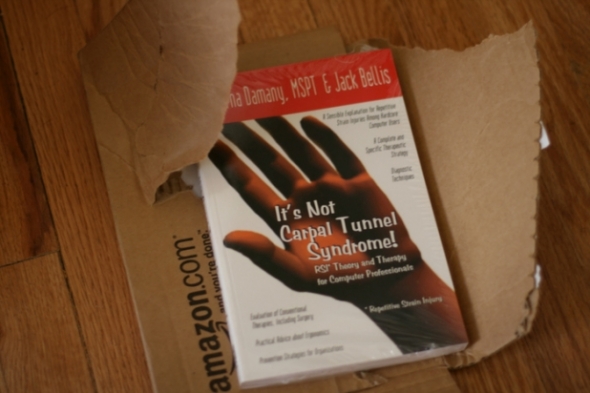I once saw an episode of the television show "Undercover Boss" that offered a good lesson for employers everywhere.
For those of you not familiar with it, "Undercover Boss" is a CBS show where a CEO who is completely unaware of what actually happens within his company dons a cheap and unconvincing disguise and spends a week working undercover within the organization. He meets employees along the way who, while turning out to be the bedrock of success for the company, have every possible malady and crisis occurring in their personal lives. The CEO learns that her company does not train, supply, support or develop employees at any acceptable level. One CEO actually found that his female employees had to urinate in a can when on the job. Ironic when you realize his company was Waste Management. The program ends every week with the CEO revealing himself to said employees, giving them each a bazillion dollars, a paid vacation to Disneyland, new teeth and a promotion to head a new department designed to do whatever they happen to be good at, like peeing in a can. I personally think the employees are being paid off to keep quiet about the CEO's inability to actually perform any job within the organization.
If you haven't guessed, this isn't my favorite show. However, my wife and I are a typical married couple and have to have something to watch, or risk having to "talk," which always gets me in trouble, so we load up the DVR.
I have often joked in the office about doing a spoof video of "Undercover Boss. The joke, of course, being that, in our small office, everyone knows me and is already aware that I am incapable of performing any job within my organization. In the real show, we always see the CEO's palatial home(s), fancy cars, private jets and drop-dead-gorgeous families. In my version, you would see a modest home with a lawn in desperate need of new sod, a Hyundai Santa Fe that hasn't been washed since 2010 and our four cats, one of whom is blind. The highlight of the home portion would likely be my mopping up the occasional accident when blind kitty is in the box but doesn't know his fanny is over the side. You would not see my wife, as she hates having her picture taken. Even our wedding photos are just of me. They came out okay, but frankly the one of me throwing the bouquet just looks staged.
I suppose I could wash the Hyundai before we commenced filming, or try to borrow my wife's Mercedes, but she requires a hefty security deposit.
But, as usual, I digress.....
The episode about which I wish to opine featured Jose Mas, CEO of MasTec Industries, an energy transmission construction company. The company builds pipelines, transmission lines and other energy infrastructure. The company was founded by Mas' father, a Cuban immigrant who passed away in 1997, at the age of 58. By Mas' own account, his father was a "hands on" businessman, involved in every facet of the operation. This really became apparent in one segment of the show.
Mas junior was in Oklahoma, where he had just demonstrated his complete inability to run a piece of heavy equipment while working with a field supervisor named Rich, who was from Georgia. Rich had been with the company almost 15 years and was preparing to retire. At one point, Rich said he "got hurt real bad" while working for MasTec. With the show's history of featuring employees who willingly rip the bejesus out of their employers while standing in front of multiple camera crews, I braced for the worst, but it didn't happen. Rich explained that he fell in a hole and crushed his ankle, the treatment of which involved surgery and multiple screws. He followed up by saying, after a significant pause, "MasTec treated me real good on that deal."
And what was it that made Rich feel that way? The CEO at the time, Mas senior, personally contacted both Rich and his wife to express his concerns and offer any assistance they needed while Rich was off the job. It was a small gesture that resulted in a huge long-term benefit. MasTec likely did other things to make the process a positive outcome, but it struck me that it was the outreach to his wife that so impressed Rich.
Communication with an injured worker from a high level of the organization is great. Communication with the worker's family and loved ones is pure gold. What a brilliant concept.
The story is even more remarkable if you do a little basic math. The accident happened while Mas senior was still alive, so more than 14 years earlier. Rich was not yet at his 15-year mark with the company when he told his story, so he was a relatively new employee when the accident happened. MasTec was a very large and successful company when the accident happened--yet the CEO made the effort for a relatively new and unknown employee.





